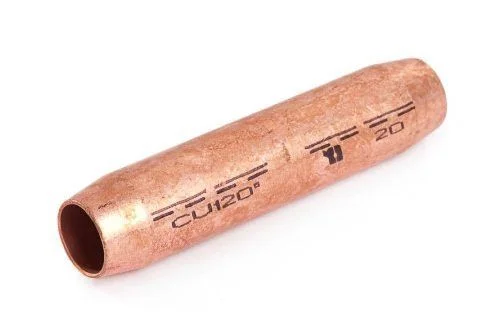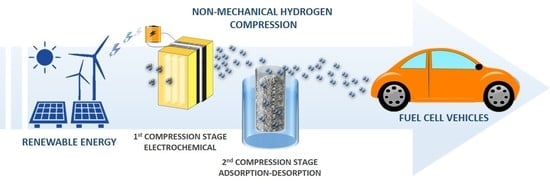The cost of the hydrogen value chain needs to be reduced to allow the widespread development of hydrogen applications. Mechanical compressors, widely used for compressing hydrogen to date, account for more than 50% of the CAPEX (capital expenditure) in a hydrogen refueling station. Moreover, mechanical compressors have several disadvantages, such as the presence of many moving parts, hydrogen embrittlement, and high consumption of energy. Non-mechanical hydrogen compressors have proven to be a valid alternative to mechanical compressors. Among these, electrochemical compressors allow isothermal, and therefore highly efficient, compression of hydrogen. On the other hand, adsorption-desorption compressors allow hydrogen to be compressed through cooling/heating cycles using highly microporous materials as hydrogen adsorbents. A non-mechanical hybrid hydrogen compressor, consisting of a first electrochemical stage followed by a second stage driven by adsorption-desorption of hydrogen on activated carbons, allows hydrogen to be produced at 70 MPa, a value currently required for the development of hydrogen automotive applications. This system has several advantages over mechanical compressors, such as the absence of moving parts and high compactness. Its use in decentralized hydrogen facilities, such as hydrogen refueling stations, can be considered.
A Complete Guide To Build A Joe Cell, Orgone Energy 2012 : Free Download, Borrow, and Streaming : Internet Archive
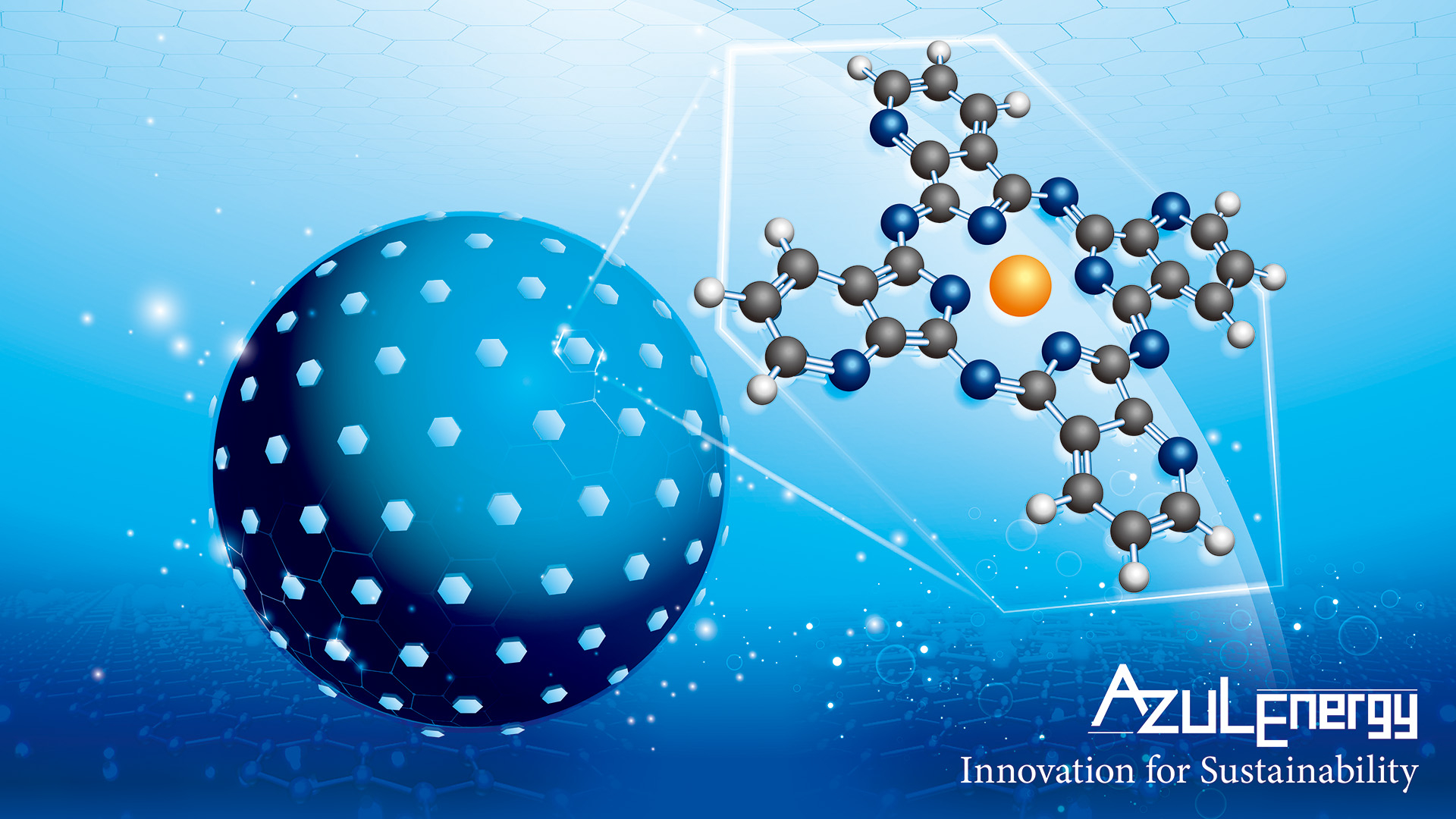
AZUL Energy Raised ¥475 Million ($3.2 Million) in Series A Funding

Aspen Plus diagram of the biodiesel production process at supercritical, aspen diesel

Energies Free Full-Text Changes In The Stock Market Of Food, 60% OFF
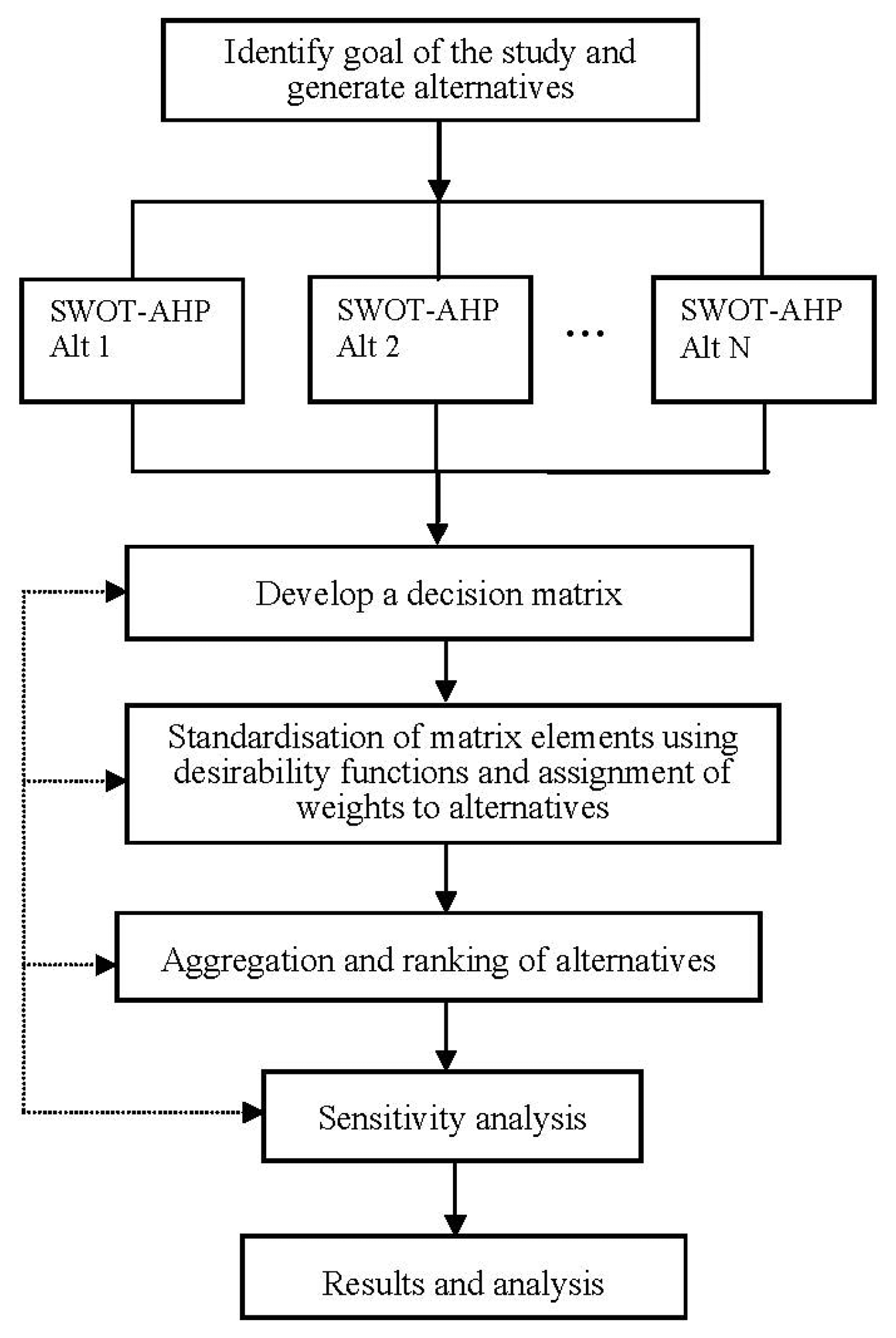
Energies, Free Full-Text
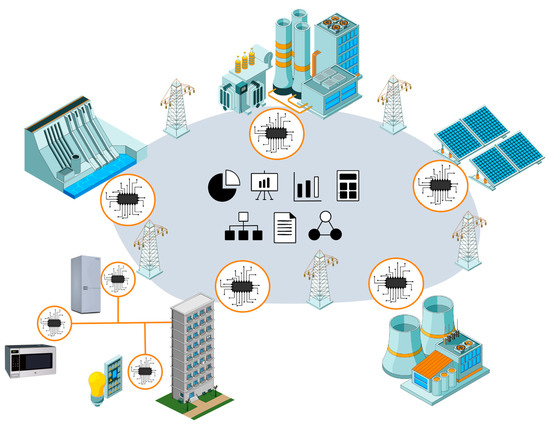
Energies, Free Full-Text
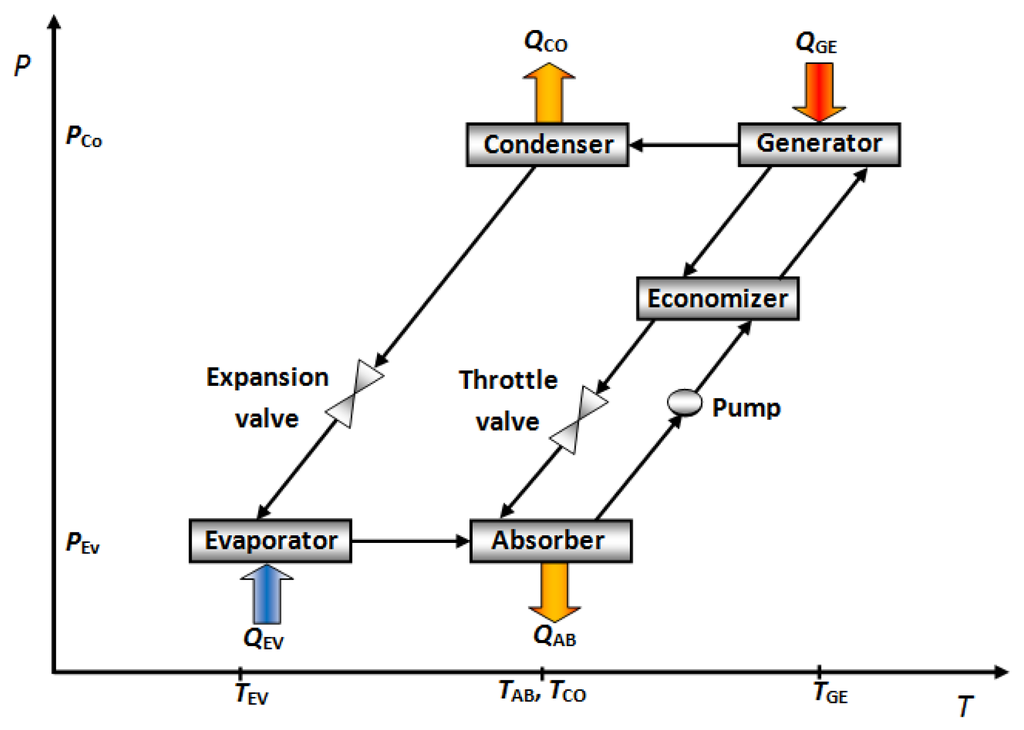
Energies, Free Full-Text

Energies, Free Full-Text, ghg emissions
Free Reading Passage 12: Electricity, Electrical Circuits, and Energy PPT

Energies, Free Full-Text, bldc motor
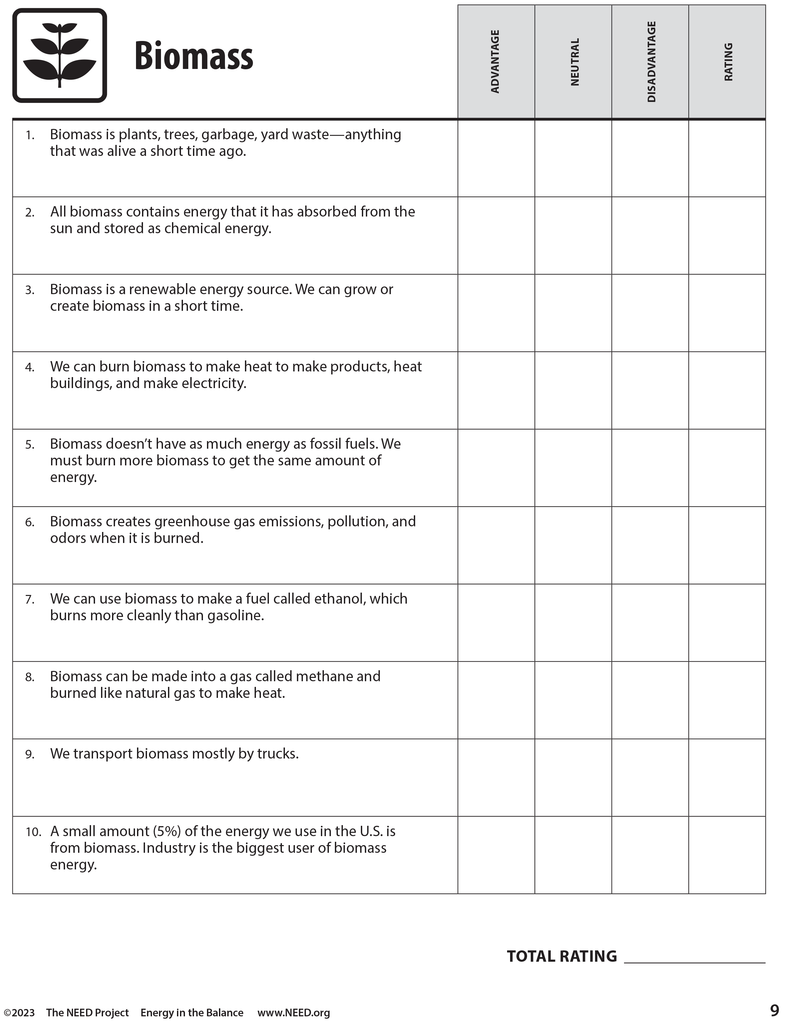
Energy in the Balance (Free PDF Download) – The NEED Project










